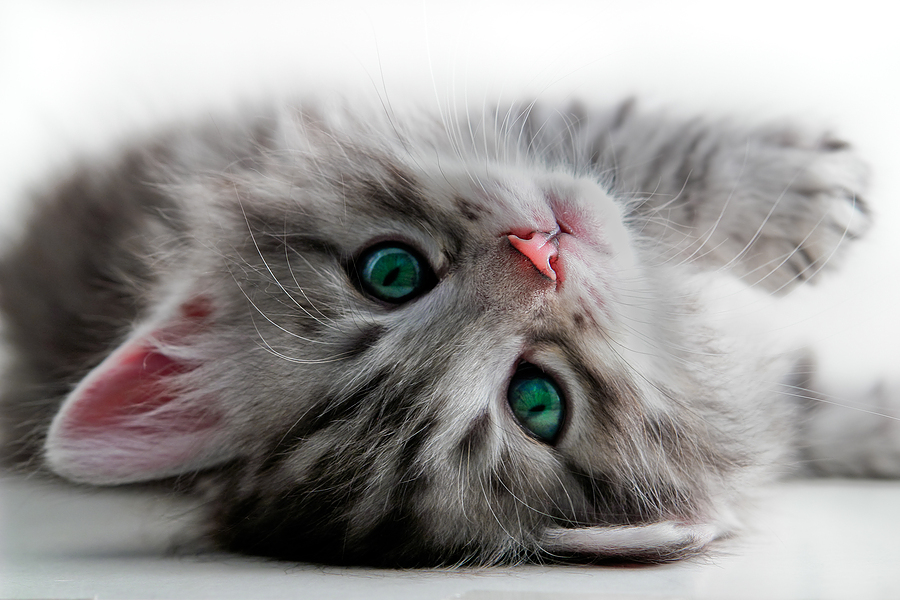Traditionally people have seen cats as “plug and play” pets who don’t need the same socialization, training, enrichment, and exercise as dogs. That’s not true, and the need to get them used to being part of a human family begins in kittenhood. Here’s how I explained it to a reader.
Q: Do kittens have the same type of socialization period as puppies?
A: They do, but it starts even earlier and doesn’t last as long. My colleague Nicholas Dodman, a veterinary behaviorist and emeritus professor at Cummings School of Veterinary Medicine at Tufts University, says the social period in kittens is between weeks 2 and 7.
During those early weeks, kittens soak up knowledge of everything around them, that clever kitty brain making new neural connections daily to generate learning and behavior. Kittens who see, hear, smell and experience many different people, animals, sights and sounds during this sensitive period grow up to be sociable, smart and curious.
Young kittens need to have many different positive experiences with children, friendly dogs and cats, people of all ages and appearances, common household sounds such as vacuum cleaners and blenders, car rides, being transported comfortably and safely in a carrier, and visiting the veterinarian. In an ideal world, they haven’t had any bad experiences with those things, and they don’t have preconceived ideas about what to expect from such experiences.
Limiting fear during this impressionable time is also important to a kitten’s development. A normal amount of fear is valuable because it helps kittens to avoid things that might hurt them, but protecting them from aversive experiences can help them to have more fulfilling lives as adult cats because they are more calm in the face of new experiences.
When young kittens encounter these things in a positive way during the socialization period, their brains store the good memories and help the kittens develop resiliency if they later have negative experiences with, say, dogs or scary noises. The neural connections their brains make during this period is how they become well-rounded, adaptable cats.
You can learn more about feline development at FearFreeHappyHomes.com.
There’s more in Pet Connection, the weekly nationally syndicated pet feature I co-write with Kim Campbell Thornton and my daughter, trainer Mikkel Becker.


